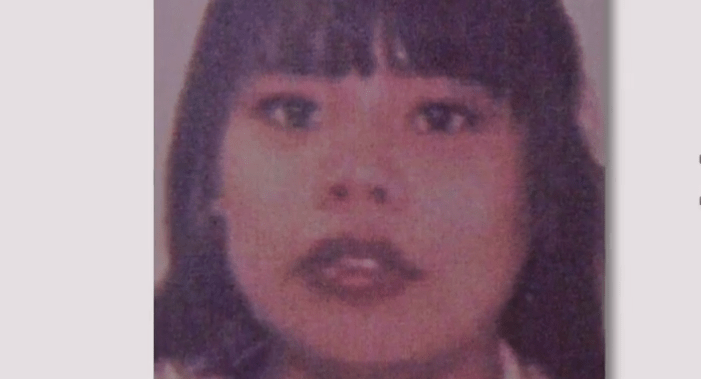Toronto police say they have cracked a 1998 cold case after arresting a suspect wanted for the death of a 24-year-old woman, who was sex trade worker at the time, using genetic genealogy.
Det. Sgt. Steve Smith made the announcement on Friday in the homicide case of Donna Oglive, who was found dead on March 8, 1998 at a rear parking lot of 130 Carlton St., near Jarvis Street, by a concerned resident.
“It looks like it may have been a sex trade transaction, and it ended in the death of Ms. Oglive,” Smith said, adding she died by strangulation and was pregnant at the time of her death. She also had another child.
Oglive was a resident of British Columbia and was in Toronto for five weeks before she was found dead, police said.

Get daily National news
Get the day’s top news, political, economic, and current affairs headlines, delivered to your inbox once a day.
On Wednesday, Smith said officers arrested Ronald Gordon Ackerman, a 50-year-old man from Gander, N.L., at Toronto Pearson airport. Ackerman was on a flight from Edmonton and was intercepted in Toronto.
He has been charged with first-degree murder.
“It’s our belief he was a client that night,” Smith said, but noted he did not know if it was consistent or just the one time.
The area of 130 Carlton St. at the time was just a large parking lot and Smith said “there was a lot of sexual activity from sex trade workers at that parking lot.”
Smith said it was the use of investigative genetic genealogy (IGG) with the help of Othram Inc. that led investigators to the offender’s family from a DNA sample. Investigators had developed a male DNA profile from evidence collected at the scene but no match was ever found, police said.
IGG is a forensic technique used by law enforcement when all other leads have been exhausted, as it can identify relatives of the person whose DNA was found at the crime scene. Investigators then use that information to zero in on a suspect.
“It’s really a game-changer for us,” Smith said. “This change in science has really allowed us to look at DNA in a different way, if we have offender DNA, to solve virtually any case that’s out there.”
Smith said Ackerman was working in the oil fields in northern Alberta for two weeks at a time and then flying back to the East Coast for the other two weeks.
“These historical cases, they’ve gone on for so long…. We have over 800 historical homicides alone. When you’re able to solve these cases, it’s a great feeling. You’re able to notify the family,” Smith said.
“When these people are still alive that they have to face justice.”
© 2025 Global News, a division of Corus Entertainment Inc.






